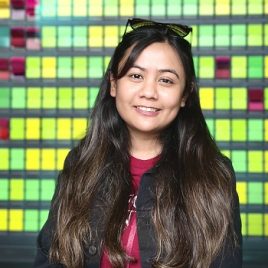See the Summer Ecopreneurial Immersion (Eco-SEI) Fellowship awardees for 2024.
Josh Cohen
Josh Cohen is an MBA candidate at Stanford’s Graduate School of Business (GSB), where he focuses on the role of software in the energy transition. Prior to the GSB, Josh led an engineering team at Raptor Maps, an early stage startup building software for the solar industry. He was based in Greentown Labs, the largest climate tech incubator in North America, and served on Greentown’s member committee. Josh cut his teeth in as an engineer at Meta, where he spent four years launching products like Instagram Fundraisers and Reels to Meta’s 2B+ users. He holds a B.S. in Computer Science from Stanford University.
Eco-SEI Focus – Surge
Surge is building software tools for battery manufacturers. We’re helping battery companies increase yield, reduce scrap, and get technologies from lab to market more quickly.

Aramis Dufour & Antoine Alary
Aramis is driven by a passion for energy and a commitment to fighting climate change. Before coming to Stanford to earn a MS degree in Atmosphere/Energy from the Civil and Environmental Engineering department, Aramis studied math and energy systems at École Polytechnique. He worked on a European power trading desk and is currently a research assistant at SLAC, working on algorithms to analyze distributed PV systems. Aramis is eager to understand how the millions of energy inefficient traditional European homes could effectively be retrofitted, lowering energy bills for everyone while providing major climate benefits.
Antoine is passionate about energy problematics and driven by the urge of fighting climate change to limit its impact on the most vulnerable. Before joining the Civil and Environmental Engineering MS on Atmosphere/Energy at Stanford, he earned an engineering degree at Ecole Polytechnique studying energy economics and renewable electricity production. His experiences in the private sector and academia, focused on renewable energy systems and project development, convinced him that decarbonization of the grid was only part of the solution, and that other aspects like energy efficiency were necessary components of a just and sustainable world
Eco-SEI Focus – Effinov
Effinov is dedicated to unlocking deep home retrofits in France, focusing on single family housing. As a one-stop-shop, Effinov secures funding for the retrofit (mix of public subsidies, 0% state-sponsored loan, additional loans) and takes care of all the technical work involved : thermal audit, retrofit design, contractors recruitment and coordination.
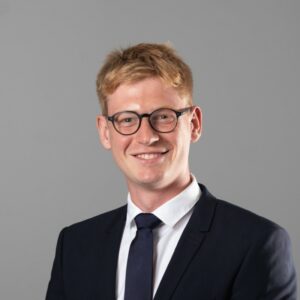
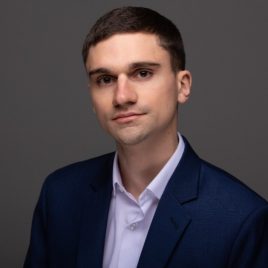
Johanna von der Leyen
Johanna is a graduate student in International Policy and Environmental Science at Stanford. Prior to coming to Stanford, she worked at McKinsey’s Sustainability Practice, advising private sector clients on sustainability strategies and climate risk topics. During her parental leave from McKinsey, she received a Master of Philosophy in Environmental Policy from the University of Cambridge (UK). At Stanford, Johanna’s work focuses on addressing environmental issues from a business and policy perspective. Her interest is centered on harnessing technological innovation to address nature- and climate-related challenges, with a focus on risk assessment, adaptation strategies, and the scalable implementation of nature-based solutions.
Eco-SEI Focus – NatureAssets
We work on conducting nature-based solutions opportunity assessment for corporates to allow them to invest in projects that are a win-win for the business and the environment.
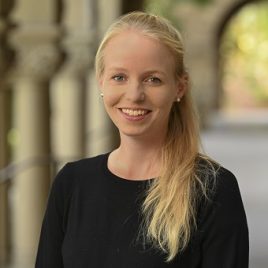
Yalcin Aydin
Yalcin Aydin is an accomplished sustainability consultant and engineer with five years of experience in the energy and manufacturing sectors, currently pursuing an MBA and MS E-IPER at Stanford University. His career highlights include designing a comprehensive decarbonization strategy that supported a nation’s transition to net-zero emissions, enabling significant growth and international expansion for a solar and wind energy company, and spearheading the development and distribution of a novel COVID-19 diagnostic test kit during the pandemic. Yalcin is deeply committed to sustainable development and is particularly interested in finding low-carbon, low-cost geologic hydrogen reservoirs.
Eco-SEI Focus – Hydrify
Hydrify is pioneering the future of hydrogen production with its innovative technology for enhancing geologic hydrogen. By leveraging advanced AI algorithms, Hydrify strategically identifies and stimulates hydrogen-rich source rocks near demand centers, enabling efficient, low-cost, and low-carbon hydrogen production on demand. This unique approach not only bypasses the limitations of conventional hydrogen extraction but also positions Hydrify to meet the growing global demand for sustainable energy solutions, making it a revolutionary player in the hydrogen industry.
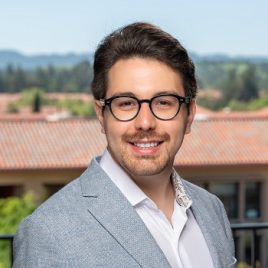
Jake Blank
Jake (MBA ’25) is an MBA candidate at the Stanford Graduate School of Business passionate about energy and climate infrastructure. Before coming to Stanford, Jake spent several years in New York investing in clean energy as a Deputy Director for D. E. Shaw Renewable Investments, driving and underwriting acquisitions of climate infrastructure projects representing over $1bn in investment. Jake has an undergraduate degree in Economics and a Master’s degree in Public policy focused on electricity markets from the University of Virginia, where he was a Jefferson Scholar.
Project Mergo – Corporate Decarbonization
Per the Rocky Mountain Institute, 23,000 companies representing >50% of global market capitalization have near-term climate commitments. Mergo is focused on finding solutions for the businesses which credibly & certainly reduce emissions from harder to abate sources of greenhouse gas, with minimal disruption to their business practices or growth plans.
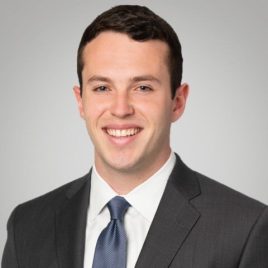
Ryan Bayne
MBA ’25. Previous Mechanical Engineer for mobile microgrids bringing fail safe power to largest events and entertainment in the US.
Eco-SEI Focus – VoltIQ
The grid is becoming increasingly constrained between reshoring of manufacturing alongside the development of digital infrastructure. Utilities are being challenged to expand system capacity quickly and accurately. VoltIQ saves 10% of time in the site selection process for large load developers and site selectors, while enabling utilities to more accurately assess intentions of service requests – ultimately facilitating greater coordination between load development and load service.
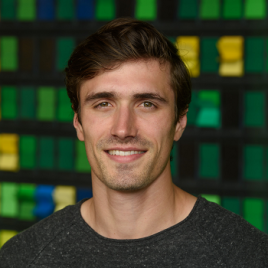
Camila Nicollier Sanchez
Camila is an Industrial Engineer with a background spanning 5 years across both big corporations and early-stage startups. She has experience coordinating and scaling Data Science and Data Engineering teams to develop and optimize ML models that serve the strategic decision-making process. Her background blends a robust business mindset with a deep technical understanding that is being refined while pursuing her master’s degree in Statistics and Data Science at Stanford. This combination equips her with the skills to coordinate technical teams, ensuring their actions align with the business needs and vision.
Emily Capstick
Emily is a Masters in International Policy student specialising in AI & Climate. Emily joined Stanford from Oxfam, where she served as Strategic Adviser to the CEO. Before Oxfam, Emily worked at McKinsey helping start-ups, tech companies and government leaders to solve problems, particularly those related to digitisation and sustainability. Emily graduated from the University of Oxford with a first-class degree in History and Politics and the Kirkaldy Prize for her research into the history of AI. As a first-gen college student, Emily is passionate about increasing equality of opportunity and in her free time likes to play rugby and quote the West Wing (mostly inaccurately).
Eco-SEI Focus – PermitPal
PermitPal aims to solve the problem of NIMBYism delaying our green energy transition. We do so by using AI to conduct community sentiment analysis which we then sell to renewable energy companies to help them (1) Decide where to build and (2) Refine how they persuade.
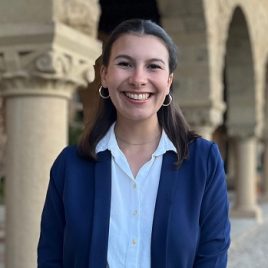
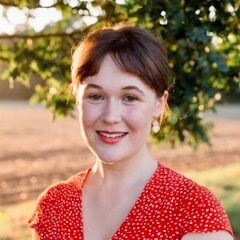
Oskar Triebe
Oskar is passionate about renewable energy and machine learning. As a PhD student in Industrial Artificial Intelligence, he pioneers forecasting solutions for the power grid. He developed NeuralProphet, an open-source project merging deep learning and statistical methods for time series. He has experience working at AI startups of various sizes and extensive applied research experience including collaborations with energy companies and RTOs. He is on a mission to decarbonize the power grid, ensuring reliable and cost-effective power for all.
Eco-SEI Focus – Aika
Renewable energy resources are added at an exponentially growing rate to the power grid, leading to unprecedented volatility of generation and net demand, posing challenges to key players in the energy grid (ISO, CCA, Utilities). Better forecasting is needed to maintain grid stability and thus allow for a further expansion of renewable energy.
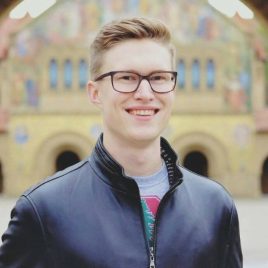
Richa Chaturvedi
Richa Chaturvedi is a joint Harvard MPA & Stanford MBA ’25 student passionate about using creative capital to fund the climate transition. She has worked across the climate finance ecosystem, including roles at BlackRock Sustainable Investing, New Leaf Climate Partners, the state of Hawaii, and the Department of Energy’s Loan Programs Office. In her free time Richa can be found swimming or searching for spicy food.
Eco-SEI Focus – for.us Climate
Millennials, society’s most eager climate investors, have been sidelined from climate investing. In the US, accredited investor rules keep most retail investors out of private markets where much of the climate investment opportunity lies. At the same time, climate founders are looking for new ways to finance their companies and scale their impact.
At for.us, we are building a new employee benefit that allows you to dedicate a portion of your 401(k) to fund early-stage climate companies. This gives retail investors value-aligned private market exposure and founders access to long-term patient capital.

Stephen Han
Vrinda Sharma
Vrinda is passionate about addressing challenges at the intersection of climate, biology, and business. She is currently pursuing an MS in Environmental Engineering, focusing on engineering bacterial metabolic pathways to utilize carbon dioxide as feedstock for producing advanced bioplastics. Prior to her studies at Stanford, Vrinda worked as a Research Associate at Pivot Bio, an AgTech startup funded by Breakthrough Energy, where she engineered microorganisms to fix atmospheric nitrogen. She is eager to combine her technical skills with entrepreneurship and gain more experience in scaling up and commercializing scientific innovations.
Eco-SEI Focus – GreenSynth
GreenSynth is addressing the need to produce valuable compounds derived from plants and animals sustainably, locally and at scale. We will deliver these compounds using precision fermentation and our proprietary platform leveraging AI, ML and our patented technology. This innovative approach streamlines supply chains, preserves natural resources, and lowers production costs across industries compared to traditional extraction and industrial processes for a more sustainable future.
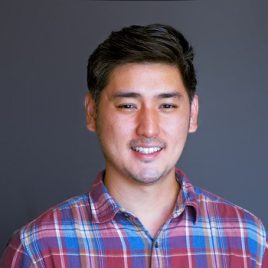

Summer Shaw
Summer is excited to build businesses that tackle roadblocks in the transition to a low-carbon economy. Before coming to Stanford to earn her JD/MBA, Summer worked in consulting at McKinsey & Company, early-stage climate tech incubation at Google X, and state government operations and policy in Missouri and New York. At Stanford, Summer has focused on barriers to financing and developing low-carbon infrastructure through her work at the Department of Energy Loan Programs Office and CIM Group. In her free time, she loves to sail (preferably on warm, sunny days), experiment with new recipes, and attempt the crossword.
Eco-SEI Focus – Scaling up renewable energy infrastructure
Today, climate investors primarily focus on funding new technologies. However, that alone is not enough to build clean energy infrastructure. Small to medium sized businesses (SMBs) such as EPC contractors, electricians, environmental consultants can play a major role in deploying the infrastructure required for the energy transition. Many of these SMBs are already profitable, stable, and slow-growing and while they are not a fit for traditional climate VC, they could be a good fit for search fund investors.
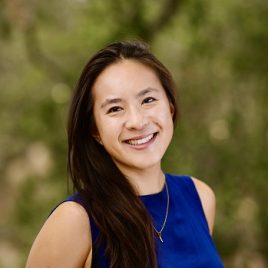
Tripp Twyman
Tripp is a second-year MBA (’24) from San Diego, CA. He completed his Bachelors Accounting, Finance and Entrepreneurship at the University of Arizona. He wrote his honors thesis on the differences between the entrepreneurial environments of the United States and Japan. His capstone entrepreneurship project was a venture to commercialize a molecule invented in a chemical engineering lab at UA. Before the GSB, he worked in strategy consulting at Boston Consulting Group focusing on large-scale change projects. Tripp also loves fresh baked cookies, scuba diving and trying new recipes.
Eco-SEI Focus – Urban Wind Flow Modeling
We’re exploring how to commercialize an urban wind flow model powered by computational fluid dynamics. At the start of the summer, our target verticals were real estate and urban air mobility (drones).
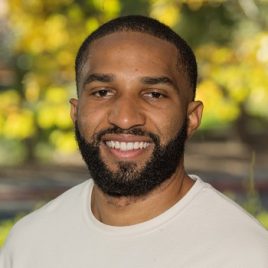
Nan Li
Nan is currently pursuing an MSx degree at Stanford GSB. Before joining Stanford, Nan co-founded and served as a board director of Silk Sportscar Company, an automotive manufacturing firm with operations in Italy, China, and the US. Silk specializes in new energy supercars. Prior to Silk, Nan co-founded Trella, a forestry technology company focused on carbon emission insetting through closed-loop forestation services. Additionally, Nan serves as a Board Director at the US-China Green Institute, where he contributes to global cooperation for sustainable environmental solutions. Being an entrepreneur, Nan is committed to sustainable development through technology breakthroughs.
Eco-SEI Focus – IgniX
Addressing the climate crisis and upcoming bans on gas and diesel vehicles necessitates sustainable alternatives. Hydrogen enables clean and renewable mobility. With an established supply chain, hydrogen engine-based solutions could be ideal for medium and heavy-duty vehicles. This research project aims to analyze the market potential and commercialization strategies of hydrogen engine-based vehicles.
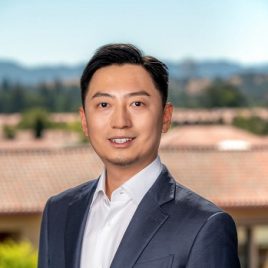
Justin West
Justin West ‘25 is a B.S. candidate in Computer Science with a specialization in Artificial Intelligence. He has conducted research in transitioning institutions towards Zero Waste. Justin is committed to the ethical application of data. While working at the City of San Jose, Justin founded the GovAI Coalition, which attracted over 100 government agencies and set a national standard for AI procurement. As a Sustainability Data Analyst at Stanford, he implemented a campus-wide Internet of Things (IoT) sensor network and developed machine learning models that significantly reduced resource consumption, saving approximately $600,000 annually.
Eco-SEI Focus – Scheduling for Sustainability
The S4S (Scheduling for Sustainability) platform introduces Occupancy Based HVAC Scheduling to the commercial ‘Built’ environment, providing a robust solution for businesses aiming to reduce operational costs and reduce their ecological footprint. By adapting energy usage to real occupancy, it ensures energy reductions of 20-30%, aids in achieving sustainability certifications, and capitalizes on utility demand response incentives. This strategic approach not only cuts costs but also enhances your market position as a leader in sustainable practices.
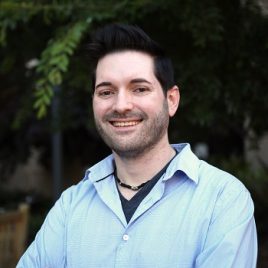
Serena Rivera-Korver
Serena is a dual degree candidate pursuing an M.A. in International Policy and an M.S. in Environment and Resources. Her environmental journey began after witnessing the devastation of Hurricane Irma and Maria in St. Martin. This inspired her to focus on sustainability, assisting Duke University with a purchase of 17,000 tons of carbon credit options and investing in sustainability-focused startups at Ulu Ventures. At Stanford, Serena aims to bridge the gap between science, technology, finance, and emerging markets. With a background in product management and venture capital, she is committed to accelerating scalable solutions to climate change.
Eco-SEI Focus – Scaling Uncertainty Aware MRV
Nature-based CDR solutions, such as biochar, enhanced rock weathering, and soil carbon sequestration, hold immense potential for mitigating climate change by removing
CO2 from the atmosphere. However, the efficacy and credibility of these solutions depend on robust MRV systems. Current MRV practices are often inconsistent,
cost-prohibitive, and technologically limited, making it difficult to accurately measure and verify the carbon removal achieved. This not only undermines the
trust and confidence of investors and buyers but also hampers the scalability of nature-based solutions. Reactive transport models offer an alternative method to calculating carbon removals and require careful thought on how best to reach scale.
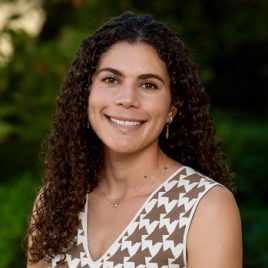
Suman Kumar
Suman is pursuing an MIP-EIPERs degree as a Knight Hennessy Scholar. After the Nepal earthquake, he collaborated with non-profits to design and manufacture machines that built 5,365 shelters for over 26,000 victims. His social venture rebuilt two schools for 150+ students and created a digital learning platform for 500+ students with limited educational access. During the COVID-19 pandemic, Suman led technological innovation projects in Nepal, collaborating with UCSF, Berkeley, and Stanford labs which. His manufacturing business built machines for waste-recycling factories, Nepal’s first aquaponics farm, and a UN research project.
Eco-SEI Focus – Soft Magnets
Our project focuses on developing low core loss magnets for use in high efficiency electric machines by using materials that minimize eddy currents. We leverage additive manufacturing techniques to produce soft magnets that significantly enhance the performance of various electrical applications, including electric vehicles, wind turbines, transformers, and power electronics. By combining advanced materials science with innovative fabrication methods, we’re engineering soft magnets with superior properties and exceptional energy efficiency. As we transition from research to commercialization, we’re actively seeking partnerships and exploring market opportunities to bring this transformative technology to scale. Our goal is to contribute meaningfully to the sustainable energy transition by providing a key component that improves the efficiency and performance of critical energy infrastructure.

Pingyu Wang
(PhD ’24) Pingyu leverages advanced microfabrication technologies to innovate scalable and affordable biosensors. They seek to interface biological systems with advanced bioelectronics, and gather unprecedentedly rich data that reveal the complex dynamics that are inaccessible with current technologies. This will inform more effective management of biological systems and tackle challenges ranging from human health to the environment.
Gradie Ngaruka
Gradie is passionate about solving pressing issues in the Global South, with a focus on Congo and the African continent. She is currently pursuing an MS in Chemical Engineering after completing her Bachelor’s in the same field at Stanford. During her undergraduate studies, Gradie worked in the Bao Group, contributing to the development of self-healing sensors. She also served as a consultant for a bioenergy startup in Rwanda, aiming to provide affordable electricity through biodigesters. Her most fulfilling work was starting a non-profit with friends in Rwanda that empowers single mothers and vulnerable high school students. Given the disastrous impact of climate change on her community back home, Gradie is particularly interested in addressing food insecurity and improving fertilizer adoption and efficiency back home.
Eco-SEI Focus – CycleN
We are developing a low-cost, distributed platform to detect and mitigate nitrous oxide (N2O) emissions, a potent greenhouse gas with a warming potential 300 times that of CO2, yet often overlooked. This oversight has resulted in significant knowledge and technology gaps in managing N2O emission effectively. Our platform holds the promise in bridging these gaps, and our Eco-SEI project aims to devise strategies to maximize the impact of our technology across both the agriculture and wastewater treatment sectors – two main emitters of N2O. By engaging with farmers, fertilizer producers, governmental agencies, food supply chain managers, and companies in AgTech and ClimaTech, we have scoped the market and identified specific challenges and needs within these sectors. This engagement has enabled us to refine our business model and tailor value propositions for each customer segment, ensuring our solutions not only meet real-world demands but also provide significant value in reducing N2O emissions.
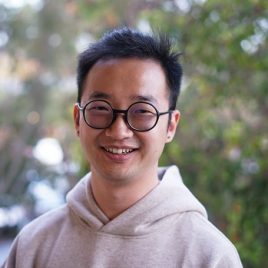

Sabrina Afroz
Before coming to Stanford, Sabrina (MBA’25) served as a Senior Economist at the Financial Accountability Office of the Legislative Assembly of Ontario, Canada. She led the first-of-its-kind project in Canada to quantify the cost of climate hazards on a $700 billion public infrastructure portfolio of roads, bridges, stormwater, wastewater, and buildings, identifying budgetary needs to maintain the public infrastructure in a state of good repair over the rest of the century. Through this experience, Sabrina recognized the critical need for proactive measures to address climate risks and prevent the failure of vital infrastructure assets.
Eco-SEI Focus – ResilienceIQ
148,000 water utilities in the US (managing 2.2 million miles of underground pipes) are facing increasing cost pressure from an aging stock of infrastructure, climate change and a shortage of skilled labour, requiring strategic prioritization of their resources. Sabrina is exploring the potential for AI/ML in optimizing strategic allocation of resources across the vast network of critical infrastructure managed by the utilities.
